Nutrition is a very big part of our everyday life. What we eat impacts our health and the environment. Here in Europe vegetarianism and veganism are a big trend. But how many people are actually participating in this trend and what about people living in other parts of the world? This is what we wanted to find out with our project.
To find out we reached out to people all over the world with a survey and conducted an interview with a Korean family. The results were very impressive. To find out read our post!
Alina Zimmi und Celia Kägi
Celia: «I am very interested in Nutrition and since I am a vegetarian myself I thought why not do a project about it?»
Alina: «I once lived in Korea with a Korean family. The food they eat is very different from what we eat in Europe, and that always fascinated me. I was very happy that they agreed to work with us.»
We are going to:
- Show you the differences between vegan and vegetarian (Pro/Con)
- Labels (short video)
- An audio file with a Vegetarian and an Interview with a vegan person, both times asking the same questions to showcase the difference.
- Photo gallery
- Interview with our contact in Korea to find out how much they know/care about being vegan/vegetarian.
- Survey
- Conclusion
Vegetarian vs Vegan
A Vegetarian diet is primarily based on not eating meat. But there are many different levels of a vegetarian diet, for example a flexitarian can eat meat but the amount is lowered to a minimum.
Vegan is very similar to vegetarianisms because they also don’t eat meat or seafood, but it is way more intense. The reason behind that is because vegan people don’t eat products which are made from any animals for example all kinds of milk products, honey and so on.
Audio recording with a vegetarian
It is a short podcast between the two of us. Since one of us is a vegetarian and the other knows nothing about such a lifestyle, we asked ourselves some questions that could also be exciting for other people.
Interview with a vegan
Since the podcast is only from the point of view of a vegetarian, we have set out to find a vegan in our circle of friends. Josh Anderegg, who has been a vegan for over 1 year now, has agreed to answer the same questions. Unfortunately, we could not meet and therefore conducted this interview via WhatsApp.
What does it mean to be a vegan?
Not eating or consuming animal products consciously. Or at least trying to minimize your dependency on them.
Isn’t it challenging for you?
The only challenging part is when other people get involved, e.g. if you try to eat at a restaurant with friends and the restaurant doesn’t offer a vegan option, or if your family wont cook something vegan at a family gathering, or if you have military service due and there’s no vegan option. As long as I’m fully in control of what I eat it’s not an issue at all.
Why did you choose to became vegan?
Health reasons, less of an environmental impact and less support for a corrupt industry branch (e.g. diary and meat industries)
Why aren’t you vegetarian?
Basically answered in 3. Diary and egg products are just as threatening to your health, just as damaging to the environment and just as corrupt industries like the meat industry. I don’t really care about the conditions of animals, but if someone does and decides to eat vegetarian so no animal is killed it’s not really consequential either. You just hold the animals hostage, force breed them and abuse them instead of killing them, I don’t really see how a vegetarian diet would improve their condition by abstaining from meat products.
Do you think your vegan lifestyle helps the enviroment? Why? Why not? In which way?
Vegan products
produce less of a carbon footprint than animal products (even if you factor in transportation costs), usually they produce less water pollution and they also need less land to be produced. The “why not” can be broken down to the fact that a lot of essential vegan resources (such as protein from soy) can’t be produced everywhere on the globe and therefore have to be transported to Europe from Brazil or West Africa, which of course needs energy, most of the time in the form of fossil fuels. It is up for debate if beef locally produced in Switzerland produces less of a carbon imprint than an avocado grown in Brazil. I’d say no, but it depends on the calculation and which factors are brought into the equation though.
Photo gallery
In this gallery you can find various food labels. If you pay attention while buying your food you will recognise them.
Interview with a Korean
In this interview we talk to the Korean Hong Hyun-Ai (My Hostmother for 19 weeks as I learned the Korean language). She is a mother of two boys and has a loving husband. Her family lives in Seoul, the capital of South Korea. We asked her some questions about vegan/vegetarian.
Do you know what vegetarian / vegan is?
Vegetarians refers to people who avoid meat and eat foods made from plants
채식주의자는 고기를 피하고 식물로 만든 음식을 먹는 사람들을 말합니다.
Do you know the difference between the tow?
Vegan is one of the types of vegetarians, and they eat only plant foods, rejecting meat and fish, as well as foods obtained from animals such as milk, animal eggs and honey.
비건(Vegan)은 채식주의자의 일종으로 고기와 생선은 물론 우유, 동물의 알, 꿀 등 동물성 식품을 거부하고 식물성 식품만 먹는다.
Do you pay attention to eating vegetarien / vegan?
It is not often seen in Korea, so it is interesting to look at it.
한국에서는 흔치 않은 일이라 신기하게 보인다.
How common is veganism / vegetarism in Korea?
I searched all my family, relatives, and co-workers, but no one was found. It is still not common in Korea.
가족과 친척, 직장동료를 모두 찾아보았지만 아무도 없었습니다. 아직 한국에서는 흔하지 않습니다.
Do you have have vegetarian / vegan products in Korea?
Food for vegetarians is on the rise in convenience stores. For example, dumplings, kimbap, hamburgers, etc.
편의점에서 채식주의자를 위한 음식이 늘어나고 있습니다. 예를 들어 만두, 김밥, 햄버거 등.
Would you trie to go vegatarien or vegan for 1 week? Why? / Why not? Which?
One week is a short time for health, so I’m thinking of giving it a try.
일주일은 건강에 짧은 시간이니 한번 해볼 생각입니다.
Do you have in Korea many different labels?
We have some labels, but not many, because it’s so rare for a Korean to be vegan/vegetarian.
아직 채식주의자만을 위한 음식을 만드는 곳은 없습니다. 하지만 많은 식품 관련 기업에서 채식주의자를 위한 음식을 따로 만들어 판매하고 있습니다.
This audio is for those who are interested in what the Korean language sounds like. Here are all the answers to the questions above.
Collaboration partners
[map]
1. Partner Interview with Korean family: Google Earth Korea
2. Partner Interview with “vegan” Josh: Google Earth Josh
3. Partner Collaboration with Reshma: Google Earth India
Survey




In the last question the people were asked on what labels they pay attention when buying food. The most named labels were Bio and FairTrade.
Vegetarian vs. Vegan – The way we eat (PDF)
Conclusion
This brings us to the end of our post. We have learned a lot through this work, especially that these life styles make a big difference in life. You have to be really sure to take such a path.
We also learned through this project that not every country and their people are interested in these life choices, which you could see in the interview with the Korean woman.
by Alina & Celia
Sources & nice to know
Pro & Con Vegan (foodforum-magazin.de)
V-Label (swissveg.ch)
Veganblume (label-online.de)
Reviewed by
- Sophie Caulfield
- Hong Hyun-Ai
Similar posts on dwme
Is living vegan better for our environment?
☷ See the project teams here »
☵ Some words about the contributions »
☴ Our sponsors and partners » (the-horse.education)
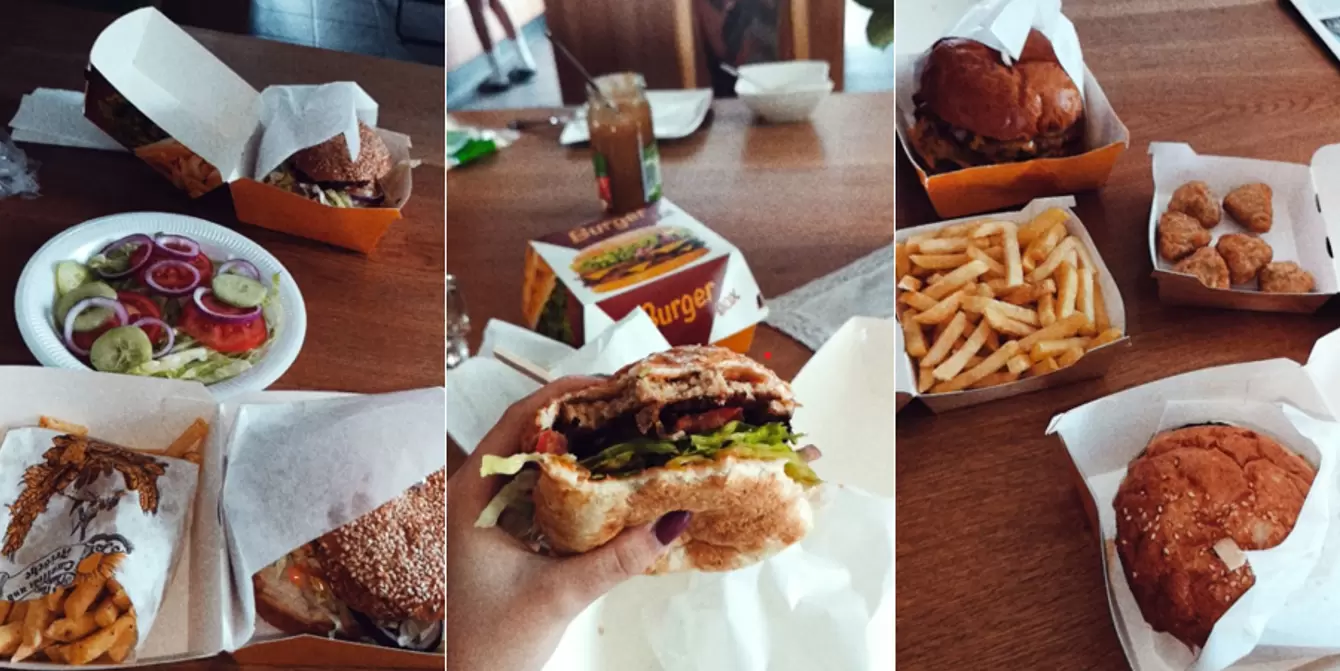
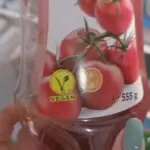


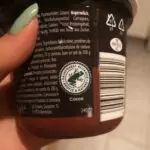

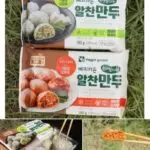
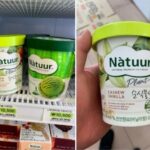

Hey thank you very much for your efforts to put together this project.
I really liked the way you put your project together. You started by itroducing everyone to the topic and differentiating vegetarians from vegans. As I have informed myself about this topic before I found it extra interesting to read up on your work. The best input in my opinion was your friends answer to the quesrion why he is not vegetarian but vegan. His answer contains valuable information and many true facts. The research I did also stated that vegetarianism is in certain aspects worse than the consumption of meat. Because instead of killing the animals after the horrors they went through already they are kept alive even longer. Also it is important to mention that we can not expect the whole entire world to reduce their meat consumption to zero. That is because in many countries that have just now reached the possibility to afford meat to include in their diet. You could say in these areas it is a trend at the moment to demonstrate their better economic/financial situation.
Thank you very much for your project
Hey!
It’s a very interesting project to read! And also a great topic in today’s world. The pictures are well done and look delicious! The diagrams are also very informative and great. I like your interviews with people from Korea, they give good information. I have learned something and it’s very helpful!
A great topic in today’s world. The profile picture triggers a great hunger me! I think it was very cleanly worked and with the kitchen mecca of South Korea. There are many delicious dishes here!
I find the project very exciting. I really like the interviews translated from Korean into German. I also know now how to imagine food products from Korea (especially vegan products). You can see the interest in the topic that was put into this project. The photos are well done and the diagrams are informative. What I think could have been changed is the information about the Korean language. It is very interesting but it distracts from the actual topic and has nothing to do with vegan/vegetarianism. Nevertheless, I think it is a very good project and you really learn something about it.
Very Interesting to read! I don’t know much about Vegeterian and Vegan myself, so this short “project” is really helpful!
Also with lot of resources (interview, survey etc.) it shows a lot of information and helped me get at least a little more understanding of other people and their way of living/eating!